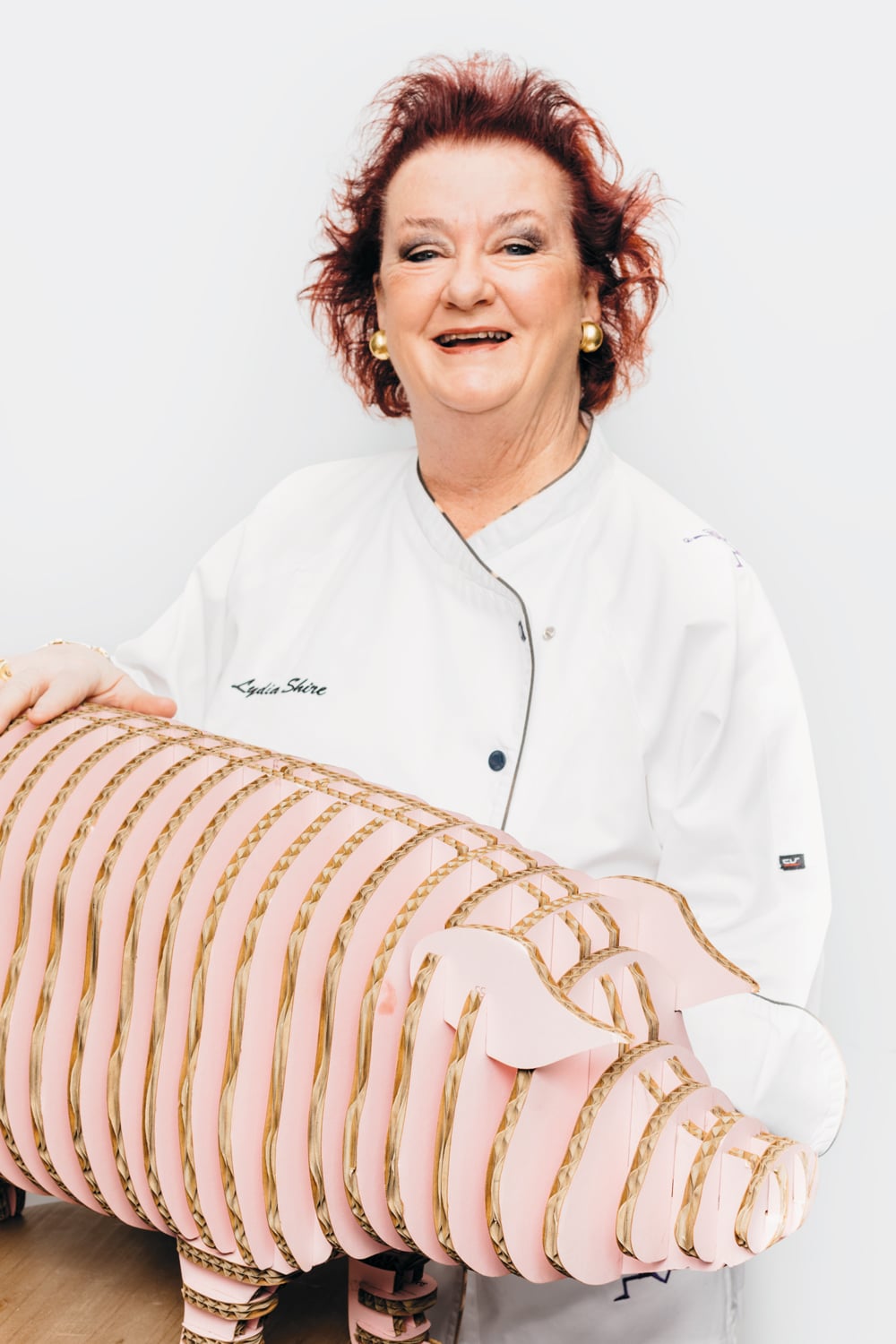5 Questions with Lydia Shire

Lydia Shire
Photo Credit : Michael PiazzaLydia Shire was a young mother of three, cooking her way through Julia Child’s books and nurturing French Chef dreams, when an unexpected divorce prompted her to actually find a job in the kitchen. Six years later, she was running Maison Robert, the onetime top French kitchen in Boston, where Child discovered her and made her a protégé. As Shire rose to national acclaim, running such legendary restaurants as Biba and Locke-Ober, she both redefined how Americans saw women in the kitchen and paved a path for the next generation of top chefs. Her relationship with Child continued until the end of her mentor’s life, a subject we explore in episode 1 of the brand-new season of Weekends with Yankee, which premieres this April.

Photo Credit : Michael Piazza
Q. When you began your career as a chef, it was not common to see a woman running a fine dining restaurant. How did you get your start?
I wanted to be a French chef, and the best French restaurant in Boston was Maison Robert. So I made a seven-layer cake [to bring to a job interview there]. It was 1971, a humid, hot day in July, and there weren’t a lot of air-conditioned cabs then, but I found one. And my persistence paid off. I started off as a salad girl, which I hated—I wanted to actually cook. So I hawked my diamond ring, got $1,000 for it, and went to London to study at Le Cordon Bleu. When I came back to Maison Robert, I started on the line and worked my way up to be chef of the main dining room, which was really unheard of.
Q. Tell us a bit about how you got to know Julia Child. What was your relationship with her like?
I think she loved the fact that Lucien Robert [the owner of Maison Robert] was paying this Irish girl from Brookline to be the chef there, that I had risen up through the ranks and paid my dues. Julia started introducing me to these young women who wanted to break into the restaurant business.
That was Julia’s beauty: It wasn’t about her. She was always trying to get people together to further the world of gastronomy.
Then as time went on, I went over to visit her in her home in Provence. She always had me making something and I was always nervous, but she was always appreciative. And then we became even friendlier. She would say things like, “Let’s go to Chinatown. We haven’t been in a long time.” Then one day she said, “Lydia, how would you like to go to London and eat oysters and drink Sancerre at Harrods?” What do you say to that? Of course you say yes.
I also was very proud of the fact that on her last night in Boston, before she moved to Santa Barbara, she came to Locke-Ober. That was her last meal in Boston. She always had duck—she never had anything else in my restaurants.
Q. Your current restaurant, Scampo, has managed to hang in there during the pandemic. What do you think the dining scene will look like in a post-Covid world?
I know that people will always need to celebrate. They’ll always need to have someone else cook for them. They’ll always need to go to restaurants because they transport you to this beautiful world. And restaurants are going to be back better than ever. When people are vaccinated, there will be scars left; those scars will remain for a long time. But you have to have restaurants. You’re not a society without restaurants.
Q. Where do you want to travel when you’re able to get out of Boston again?
Besides New York, I love Maine. To me, it’s a casual place, although there are fancy restaurants there too. But to go to Boothbay Harbor and sit on the dock at the wharf and eat lobster—that’s heaven on earth.


